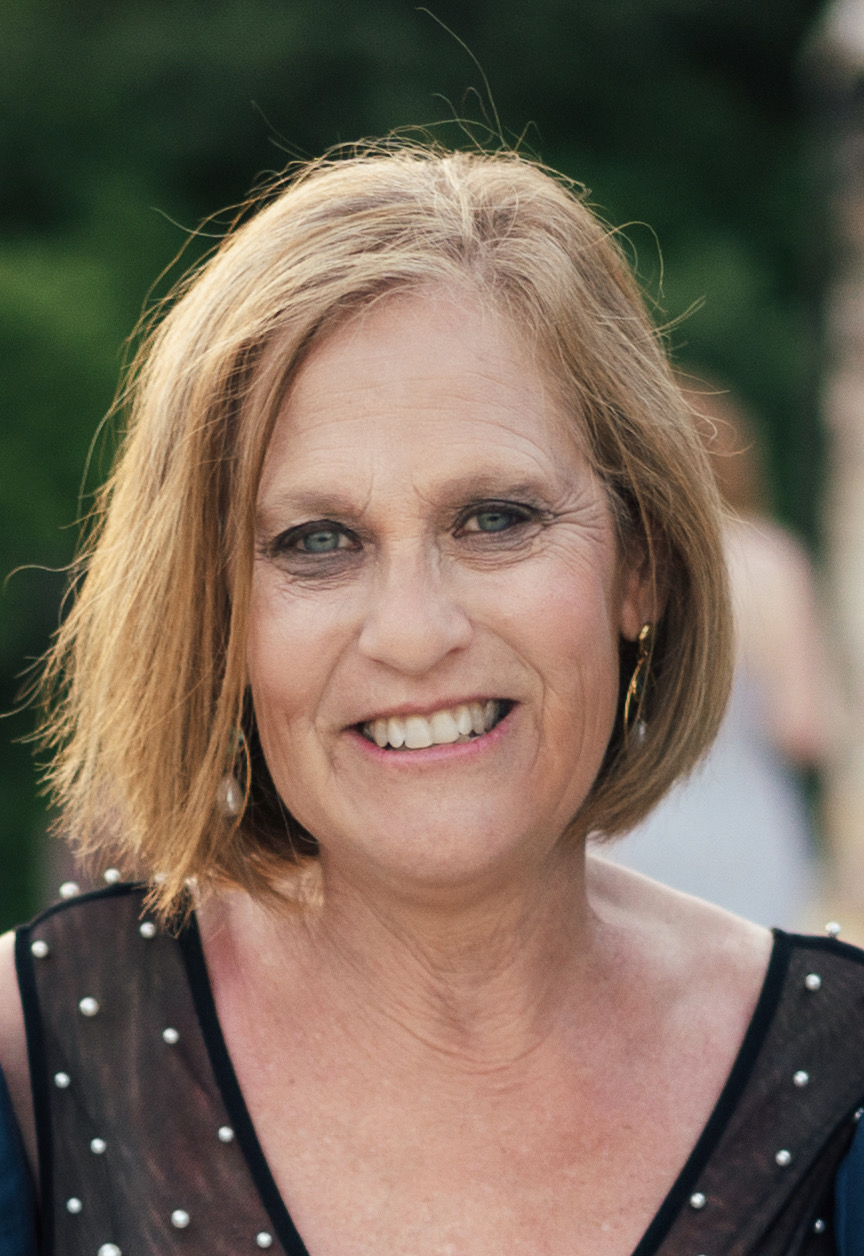
Robin Stevens Payes is a Maryland-based storyteller, author of the teen time travel adventure series, Edge of Yesterday, and creator of EOY Media’s interactive “learning through story” platform, through which she has developed programs for STEM and STEAM (integrating arts and design into STEM) engagement.
Here is what Robin had to say when we asked her about communicating through story:
GenHERation®: As a professional with experience in television, communications, marketing, and consulting, what is one skill that has allowed you to excel in these different areas?
Robin Stevens Payes: In some ways, it has been an advantage to bring so many different experiences into the work I’m now doing, but if I have to choose I’d say interviewing has been the one standout through all of those areas. As a journalist, as a consultant, and as a writer, developing strong interviewing skills is the through-line: researching, developing questions that go beyond the obvious, listening, learning to summarize and accurately report back what you’ve heard, and how to fact check.
GenHERation®: What are two steps you can take to discover your talents?
Stevens Payes: Well, let’s first off define “talent.” To me, a talent is what you love to do so much that something would feel missing if you didn’t pursue it. To tap into your talent, here’s what I’d recommend:
1) Try lots of things! There are a lucky few people who are born knowing who they are, their talents, and what they want to do in the world. For most of us, it’s a process of trial and error. For me, it has often been errors that have opened up those gifts. I recommend trying different things to see what most inspires you because if you’re not inspired, you most likely won’t stick with something long enough to master it. There are definitely moments when even the greatest talents among us feel like giving up, but making the effort and being open to new ideas, experiences, people and learning—having a growth mindset—is key.
2) Listen to what your heart says. This is not an easy thing because we are raised to listen to what other people tell us is good for us: parents, teachers, peers, the media. There’s so much outside noise! To really hear what is in your heart means turning off your devices, turning off social media, and paying attention to the things that put you into a creative flow—for me, that’s writing. For others, this could be running, dancing, playing music, inventing, or meditating. In the end, only you can decide not only on your talents, but how best to cultivate them.
GenHERation®: How can you be an effective communicator both in person and digitally?
Stevens Payes: Given that I am a journalist by training, you might think my first piece of advice is to focus on what you want to say, but that is not so! The impression you make is formed not just by your words, but by how you present yourself. In person, you have the benefit of direct nonverbal feedback from a teacher, a parent, an audience, or even, let’s say, a potential employer in a job interview situation. Professional dress, a firm handshake, direct eye contact, and a smile can communicate so much. Showing respect, engaging with interest, and being a good listener—nonverbal skills—are essential. Now, we’re all communicating through screens, and while the tips I mentioned still apply, I have a few rules for video conferencing:
- Look professional (at least from the shoulders up!), be prepared, don’t text your friends in the middle of a meeting.
- Keep your camera on! It’s almost impossible to engage with a blank screen or an avatar.
- Have the lights on and keep your curtains open. If you’re in shadow, you’re hiding! It comes across as not wanting to be seen.
- Show up looking engaged, alert, and prepared. Show you really want to be part of whatever’s going on.
- Makeup is not a specialty area of mine, but use it if it’s important to communicating who you are and what you care about. You can add a hint of color on your lips to highlight your smile!
- If you want to know how you appear on screen, record yourself and listen back later (this can be helpful for virtual interviews). I recommend giving yourself a bit of time between the recording and the listening back, so you can be more objective in deciding where and how you might improve.
GenHERation®: What tips do you have for crafting and sharing your personal story?
Stevens Payes: We all have stories about what happens in our lives and why we are what we are. Those stories are shaped by our families, our experience, and by society. Most of them are stuck in our heads: neuroscientists have determined that we have as many as 6,000 thoughts a day—thought worms, they call them. With all those thought worms popping in and out of our heads, many people don’t even realize that they’re repeating the same loops over and over—we get stuck in stories and keep ruminating on them. Therefore, the first thing I recommend is keeping a journal. I have a whole workshop, “Story of Your Life: Journaling through Times of Crisis and Change,” for those who may want to go deeper on this practice, but here are some suggestions on how to craft your story:
1) Make it a habit. First thing every morning, or last before bed, jot down your thoughts—not what you ate or did, but how you feel, or what ideas are top of mind.
2) Just write. Don’t worry if what you’ve jotted down is not beautiful prose, or even written in full sentences.
3) Most important, refrain from self-censoring. Some of the most impactful personal stories unearth some pretty raw feelings. We are all shaped by experiences that may be tough, as well as those that are hopeful, and there is something in the universality of all this that makes it valuable to share. They bring us together, even in adversity. On the other hand, you may also glean some golden moments: the time your mom came to soccer practice and saw you assist in a goal; the stranger who returned your wallet; the friend who called just to see how you were doing. How did those experiences make you feel? I call this unearthing of emotion being an “archeologist of the soul.” You sometimes have to dig deep to uncover the most meaningful moments. It can be enlightening.
I recommend not reading back your entries until you’ve written for at least three weeks, no matter how tempting it is to relive those thoughts. Write forward. Once you’ve been journaling for a few months, you may want to read back to really get a sense for what’s on your mind. Are there common threads? Any “aha” moments? Can you unearth the events, insights, or experiences that you think form the seeds of a story?
GenHERation®: How can you improve your writing?
Stevens Payes: Write, write, write! The best way to get better is through practice. That’s rule number one. However, you can’t write if you’re devoid of inspiration, so rule number two is to get your creative juices flowing. Journal. Read. Go out in nature. Dance. Sing. Draw.
GenHERation®: What are the first three steps you should take if you want to write a book?
Stevens Payes: First, plan the story. Some people outline before they start writing. Others kind of go with the flow. I have written books both ways. Second, sketch out your characters and establish a narrative “voice.” In my Edge of Yesterday books, Charley Morton, my narrator, is a young STEMinista who wants to be a modern-day “Renaissance girl.” Someone who wants to “do it all” from musician to star soccer player to inventor, and who dreams of growing up to become a forensic anthropologist. Third, carve out regular writing time. Fiction writing, especially science fiction, takes a lot of mental energy. When I’m in book-writing mode, I try to carve out a couple of hours every morning, first thing, when I turn off all my notifications, emails, social media alerts, and other outside distractions under my control.
GenHERation®: How can you structure your days to address all of your priorities?
Stevens Payes: Oh, this is a tough question for me! I am not as diligent at this as I should be. I have to be very disciplined, especially when I am in writing mode or trying to meet a deadline. Again, for me, the best time to get some serious writing done is in the mornings, so I block off 7:30-9:30 AM and do not stray from writing unless it’s an emergency. When I’m in that flow, by the time I look up, it’s time for a coffee before I jump into meetings or calls. It’s hard to get back to the story when I’ve got a workshop to plan or client work to take care of. Discipline and organization is important, but so is letting your mind wander from time to time. I get ideas about a plot twist or how I’m going to solve something that’s not working in the story while I’m in the shower or driving to the grocery store. It’s then that the notes on my phone are my best assistant—I can dictate or type into them before I lose that train of thought. When I’m trying too hard to solve the problem in my writing time, I can never figure it out. It’s only when I put it all into the back of my brain and let my mind wander or daydream that the answers seem to appear!
GenHERation®: What is the best piece of advice you have ever been given?
Stevens Payes: Whenever you feel you’ve come up against a wall, keep going. Being an artist is hard. We struggle with inspiration or think, “I’m not good enough.” It’s easier to give up than to persist—to rewrite something for the fourth time; to have to write a character out of the story because it makes no sense to have him there; to have a plot twist you’ve worked so hard on that just doesn’t work. However, then, I think, “Who would write this story if I didn’t?” If just one young person could be inspired, entertained, or become braver because of my work, I can’t let them down by giving up.
Robin Stevens Payes is a Maryland-based storyteller, author of the teen time travel adventure series, Edge of Yesterday, and creator of EOY Media’s interactive “learning through story” platform, through which she’s developed programs for STEM and STEAM (integrating arts and design into STEM) engagement. Edge of Yesterday is currently collaborating with engineering company, ADS, on a new initiative nurturing our superpowers moving beyond STEM and STEAM toward MASTERY.



Comments (0)